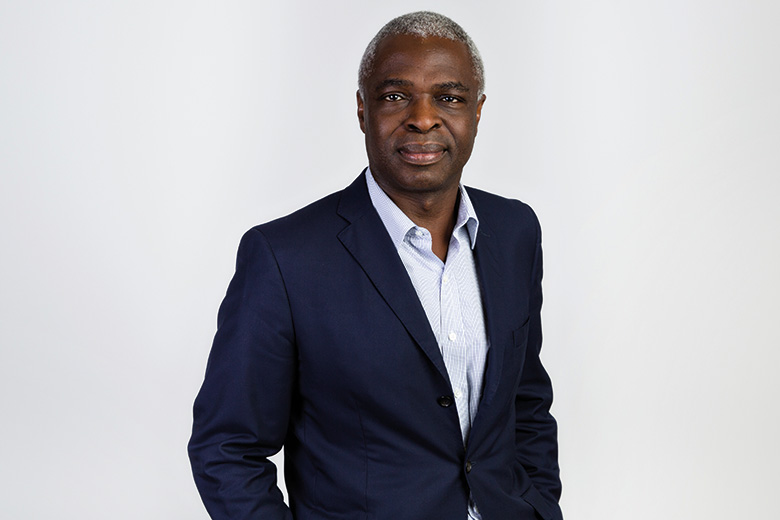The job of university president was, until recently, a gig reserved almost entirely for the seasoned professor battle-hardened by decades in academia.
Today’s US university and college leaders, however, are increasingly a different breed: among their ranks you’ll now find a former Homeland Security chief, a four-star admiral, a sprinkling of retired congressmen and senators and a legion of former lawyers, chief executive officers and blue-chip executives. The UK has gone less far down this road, but its vice-chancellors include former government officials and BBC executives, as well as an ex-banker and a former higher education minister.
The ascent of these “non-traditional” leaders in higher education is, however, controversial for many, with traditionalists dismayed by what they see as a hostile takeover of the largest office on campus.
How do I know this? I entered higher education as a non-conventional leader and am the dean of the University of Virginia’s Darden School of Business.
Before Darden, I was a senior partner at management consulting firm McKinsey in Brussels for 26 years. During my final years there, I completed a doctorate at the University of Pennsylvania, studying the emergence of non-traditional presidents at US liberal arts colleges. What I found is that the traditional president coming up from the ranks of tenure-track faculty is still the norm by a 2:1 margin. Yet signs of a shift are evident; one-third of US liberal arts college presidents today are non-traditional, up from less than 10 per cent just a few decades ago.
Faculties have traditionally chosen to be led by one of their own because they want someone who understands academia’s culture and norms, and a person who views the pursuit of knowledge as a primary objective in policy decisions. Disparate trends, however, are converging to change this. One of the biggest drivers is a scarcity of traditional candidates. Tenured and tenure-track faculty accounted for just over one-third of all liberal arts faculty in 2009, compared with 78 per cent in 1969. Scholars holding the classic credentials to lead also have a diminished appetite for the top job. The easiest explanation for this declining interest in a once-coveted position is that the job has changed. Presidents have always had to lead the faculty and preside over administrative staff, but they are now increasingly expected to take on external-facing duties, such as fundraising, interacting with the community, managing crises and serving as a civic leader. Those duties have thoroughly crowded out other aspects of the job and all of them have become more challenging. Fundraising goals are daunting. Travel demands are punishing. Stakeholder pressures – amplified and enabled by social media – create a 24/7 pressure cooker in which legions of stakeholders can act like activist investors.
The business model of higher education is also far more challenging than it used to be. Most US colleges are having to cope with far higher levels of tuition-fee discounts, brutal cutbacks in state or grant funding and increased competition for students from public, international and technology-enabled universities. Beyond making the job of a president less fun, these changes make it far less secure and average tenures have dropped. All of this might be manageable if not for one additional problem: the changes to the job’s content mean that it no longer necessarily plays to the strengths of the scholar. Many large research universities today, for example, have hospital systems that represent as much as half of their revenue and employment. Overwhelmingly, the modern president’s work involves duties for which most professors are neither trained nor prepared.
As such, nervous boards recognise that search professionals can bring with them best practices that can save them from mistakes. This creates greater mobility for candidates and opens the non-traditional option for many search committees that wouldn’t have encountered those unconventional candidates before.
Universities need to be managed like the large, complex organisations that they are. However, they are not just another form of business: they are mainly not-for-profit, mission-driven institutions. For the non-traditional candidate, having no understanding of or sensitivity to the culture, norms and scholarly processes of higher education is not helpful. Conversely, having no business, managerial or fundraising experience is not helpful to a traditional candidate.
So, do you need a non-traditional or a traditional leader? That is no longer the right question. The right question is, instead: “What are the leadership challenges that need to be solved, and who has the right mix of abilities to do it?” Traditional leaders with managerial experience will still be attractive candidates, but those from outside academia may prevail if they can show that they are strong on strategy, fundraising, character, energy, management, community relations and team-building.
Deliver on these and even the most sceptical of scholars might soon believe that business leaders have every business being on campus.
Scott Beardsley is dean of the University of Virginia Darden School of Business and author of the book Higher Calling: The Rise of Nontraditional Leaders in Academia.

Root out complacency: the view from retail
Many academics would shudder at the idea of taking tips from supermarket bosses. These executives might know about supply chains, profit margins and building the next superstore, but how relevant is that to academia? Even those who buy the idea that students paying high fees are consumers could doubt that the concepts of competition in the respective sectors are comparable given that students must make their one-off choice of institution with no opportunity to sample rivals or to seek a refund if they change their minds.
Andy Higginson is chairman of Morrisons, one of the UK’s “big four” supermarkets, with a turnover of £16.3 billion last year. He concedes that choice and competition “don’t work in quite the same way” in the public sector. Nevertheless, “the principle of responding to the customer and giving them great service applies just as strongly”, he says.
Echoing the pro-market tone of the UK government, which has recently made it easier for new entrants to acquire degree-awarding powers, Higginson, a former finance director at rival supermarket Tesco, thinks that greater competition will promote greater differentiation in the university sector, just as it does in retail.
“Competition between retailers is constructive not destructive – it makes you work harder to provide a better service to your customers and to closely meet their needs,” he says. “To compete, universities must really focus on how they are different and be proud of what they do. It’s all about being in tune with what young people want from higher education and also playing to and developing strengths.”
In this regard, Higginson, who studied town planning at what was then Birmingham Polytechnic (now Birmingham City University), believes that the conversion of all the polytechnics into universities was a “mistake” as “polys had a clear point of difference…You need to create real choice in any market – we should embrace that.”
So what would Higginson do if he were a vice-chancellor?
“I would root out complacency [and] get [staff] focused on excellent undergraduate education,” he says. “I don’t accept it when people say: ‘That’s the way we have always done things.’” He would be direct with students about the amount of teaching and support that they will receive, claiming that many undergraduates are “short-changed in terms of what they get for their fees. Undergraduates have been used as income generators to support research and PhD students: that’s unacceptable.”
Having faced his fair share of critics over high pay while at Tesco – he was paid £2.3 million in the year before he quit in 2011 – how would Higginson handle the current furore over vice-chancellors’ pay, which averaged just under £260,000 in 2015-16?
“If you want a big job, you have to accept that scrutiny comes with the role,” he says. “Even if it feels like an attack at the time, it’s OK for society to ask questions – we had to learn this at Tesco.”
In his own case, Higginson could cite the supermarket’s annual sales of £67 billion in 2011 and his masterminding of its move into banking to justify his pay. Likewise, universities need to have “good answers”, he says.
“In the world of social media, minor views can get a disproportionate share of the [attention] so you have to be robust,” he says. “Question yourself and be clear as to whether you are doing the right thing. And be prepared to explain what you are doing and why.”

Get tough: the view from private equity
Spotting potential for growth is an increasingly important task for English universities seeking to flourish in a world of uncapped undergraduate numbers and declining numbers of 18-year-olds.
This is also the business of the private equity industry. And, love or loathe these masters of the corporate buyout and turnaround, they are generally very good at it. Hundreds of now-ubiquitous brands and companies have been jolted into success after fund managers, equipped with a plan, acquired an interest.
But could anything similar be achieved in higher education? Wol Kolade, managing partner at Livingbridge, a private equity firm with more than £2 billion in assets, believes that it would be tough, but insists that lessons could still be learned from his sector.
“As a vice-chancellor, there isn’t much room for manoeuvre,” says Kolade, whose firm invests anywhere between £2 million and £70 million in promising businesses. “Universities have multiple stakeholders – government departments and quangos, funders, the local community – and there is lots of regulation.”
The power of academics and students also limits institutional ability to enact truly radical change, he adds. Nonetheless, universities should seek to emulate private equity’s “laser-sharp focus” on “core capabilities” and double down on areas of excellence and distinction from rivals.
“If I were a newer university, I would work on how I could be the best at teaching that I could possibly be,” he suggests, adding that his institution would be “ahead of the curve in how we use technology in teaching”.
Universities should also be bold enough to think the “unthinkable”, such as going private, says Kolade, whose investment in the clothing chain Fat Face in 2000 helped it to triple its number of stores and increase revenue sixfold before he sold his stake in 2005.
He thinks that by taking a distinctive approach, an institution could benefit from greater governmental attention. “For example, if I were a vice-chancellor of a university that stopped calling itself a university and reduced fees, I would become a market disruptor and I may be able to influence the debate,” he says.
Kolade would also reconsider course structures and the length of holidays, moving towards a year-round operation: “Institutions have to get tough and reject some of the norms that we have relied on in the past as to how and when students study,” he insists.
“As a leader, I would take a tough look at my team – have I really got the people who I need in place? Are they flexible in thinking and able to accept the culture of change as the norm? Being slightly uncomfortable is the place to be if we are going to push things to change.”

Serve society: the view from the insurance industry
University leaders may claim that their high pay is deserved because they run large and complex organisations with multimillion-pound turnovers.
Compare their operations with Lloyd’s of London, the world’s largest insurance provider with annual premiums of £30 billion, however, and even the largest universities seem positively small-time.
So what does Richard Ward, chief executive officer of Lloyd’s from 2006 to 2013, think about the UK’s current crop of university leaders?
Ward, who is now chair of Cunningham Lindsey, a loss-adjusting claims management and risk solutions firm, thinks that this summer’s row over vice-chancellor pay levels was inevitable because university leaders’ “extraordinary” rises in recent years are “perceived to be way beyond the increase in value that they have created”.
He also suggests that if the justification of high vice-chancellor pay is truly to allow universities to recruit “the best, then maybe they should open up the posts to [more] non-academics”.
That said, he questions the drive to run higher education institutions purely as businesses. “Ultimately, universities are effectively charities, so shouldn’t be driven by the same measures of success as commercial businesses,” he says, adding that leaders should “focus on good governance, stewardship and educational mission. Universities are there to provide a service to their students, their local community and to the country – their duty is to serve society rather than necessarily advance up the league tables.”
Ward did a PhD in condensed matter physics at the University of Exeter, before moving into management via a stint as a scientist in industry. So what would he do differently if he were a vice-chancellor?
One thing that he wouldn’t do is drop entry standards to grow student volume because “the value of the product would diminish. To me, university education is a premium product and you must maintain standards at all costs.”
But the current volatility in English higher education does, he insists, offer opportunities for positive change, if universities are willing to “get ahead of the curve and restructure”.
“It’s easier to create opportunity from uncertainty than certainty,” he says. “Business leaders always like certainty because it helps business planning, but…disruption creates opportunities to change. It makes you think and operate differently and therefore create better solutions for your organisation.”
The problem, he says, is that some leaders are unable to cope with change and act like King Canute, apocryphally trying to hold back the tide. “The answer is to change the leadership and identify leaders who can bring new approaches and ideas,” he concludes.
Interviews by Susie Hills, joint chief executive officer of Halpin Partnership, a management consultancy for higher education.
POSTSCRIPT:
Print headline: If the gown fits, wear it
Register to continue
Why register?
- Registration is free and only takes a moment
- Once registered, you can read 3 articles a month
- Sign up for our newsletter
Subscribe
Or subscribe for unlimited access to:
- Unlimited access to news, views, insights & reviews
- Digital editions
- Digital access to THE’s university and college rankings analysis
Already registered or a current subscriber?






